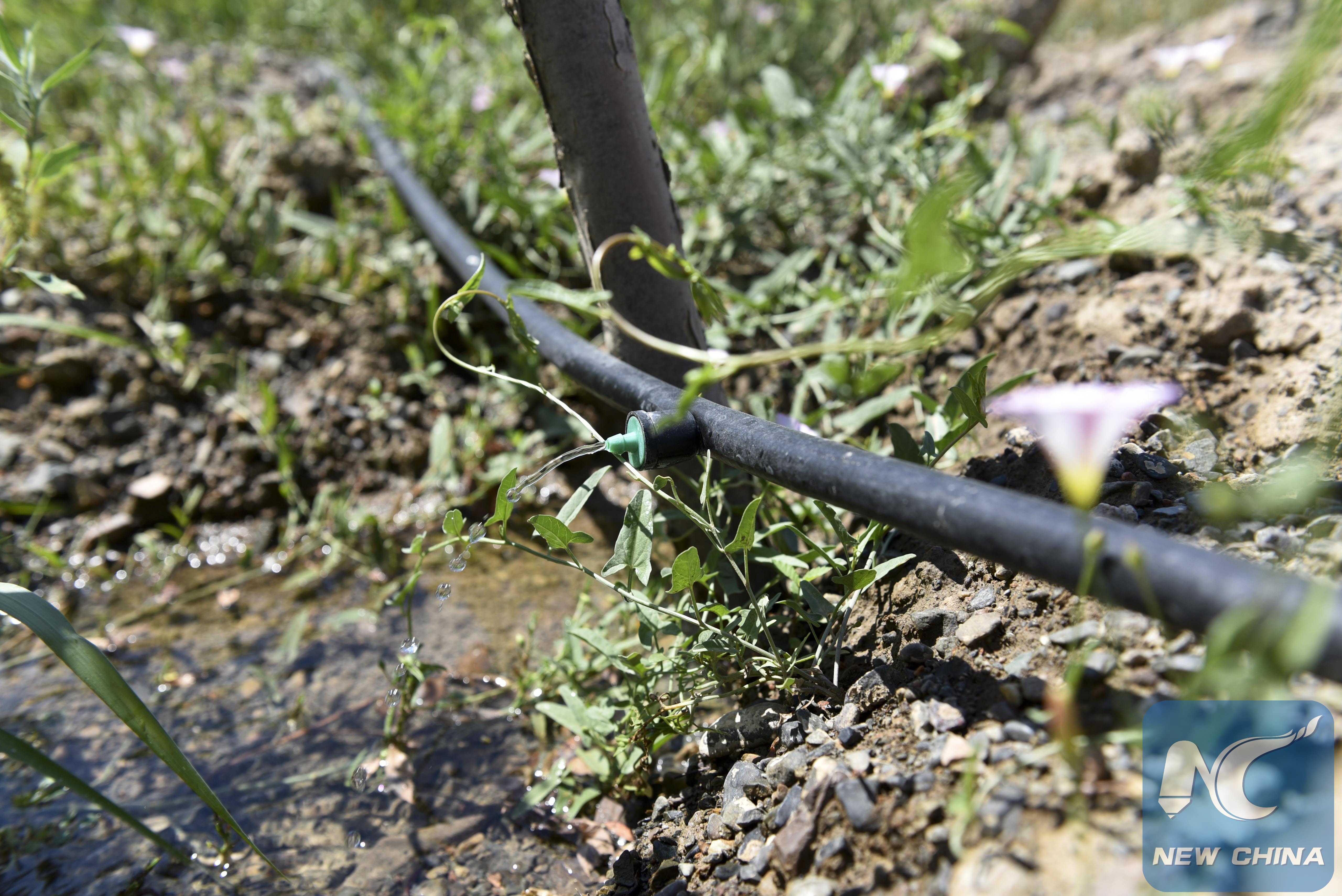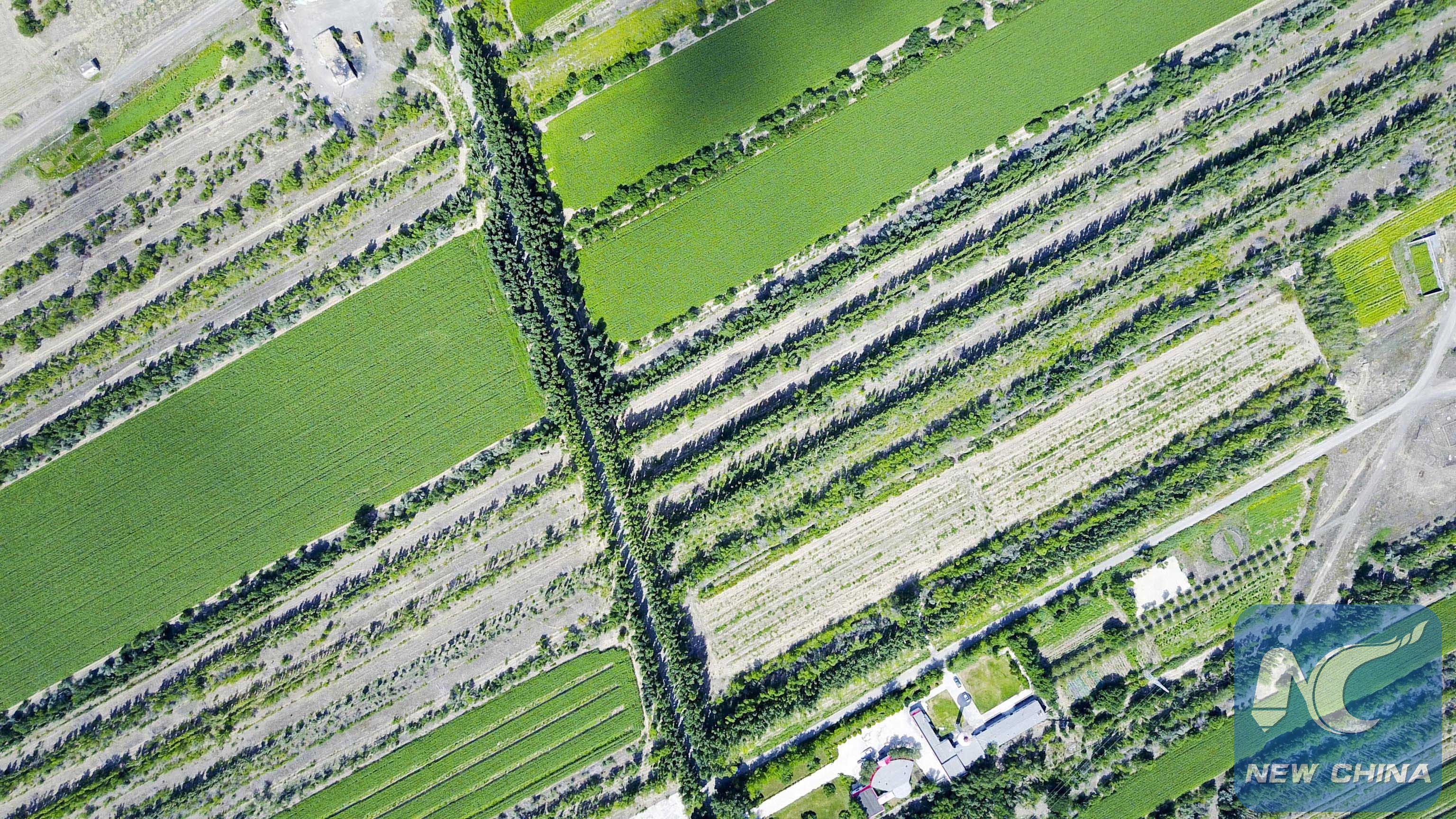
An aerial view of windbreak forests in Laofengkou, Tacheng of Xinjiang.
by Xinhua writers Luo Zhen, Guan Qiaoqiao, Li Zhihao, Hu Huhu
URUMQI, Aug. 2 (Xinhua) -- 20 years have passed since Gong Zhengxiu first came to work as a ranger at Laofengkou, a notorious mountain pass in Tacheng, northwest China's Xinjiang Uygur Autonomous Region. He still keeps a fresh memory of what he saw then.

Ranger Gong Zhengxiu stands in the lush green forests
"When I first came here, there is nothing except a vast expanse of gobi desert," said Gong while standing near a windbreak forest, with lush green leaves behind him. "Nothing grew on the soil two decades ago, but now things have changed."
Deadly pass
Laofengkou, one of the nine windy passways in Xinjiang, sits on the border between China and Kazakhstan. It used to be known as "the deadly pass" for its extreme windy weather conditions. For centuries, strong winds had been blowing all the year around in the 20-kilometer mountain pass.
The harsh weather has wrecked damages to locals. Records show 26 people lost direction and were later frozen to death in a heavy storm in winter of 1966. Thousands of livestock were blown away beyond the border in winter of 1977 and many rescuers got frostbite.
Residents in Tacheng have tried out various methods to retrieve lands from the strong winds. They set up enclosures, built up mud fences and dug out snow-storage caves to hold back strong winds, but to no avail.
Taming the storms
With firm determination to lessen the damages, local authorities in Xinjiang launched an ecological project to harness the harsh environment in Laofengkou in 1993. Gong Zhengxiu was then sent to work on the project his hometown on the Yangtze River, China's longest,to Tacheng. He has witnessed all the changes ever since.

Drip irrigation system in an ecological forest in Laofengkou
Local people have been enthusiastic about afforesting the border town area. For middle-aged people in Tacheng, memories of their school lives are mostly about tree-planting activities. Thanks to their contribution, the previously deadly pass of Laofengkou has turned into an oasis.
Land of hope and prosperity
The green revolution has turned Laofengkou into an oasis covering an area of 8,400 hectares. Man-made windbreak forests totaling 28 kilometers have been planted in the area, offering protection for arable land and pastures.

An aerial view of present-day Laofengkou
As time passes by, the barren mountain pass has become greener and attracted many wild animals, like rabbits, foxes and wild boars. Local authorities have come up with ideas to make good use of the wind resources for power generation and invested to build a wind power mill in Laofengkou, which helps ease power shortage in the area and boost local economy.
Till this day, Laofengkou has started a new page, with tall, green trees and a stunning skyline. For Gong Zhengxiu, the ranger, and other residents living in the area, the windy pass has evolved into a land of hope and prosperity.
(All photos are provided by Hu Huhu)

